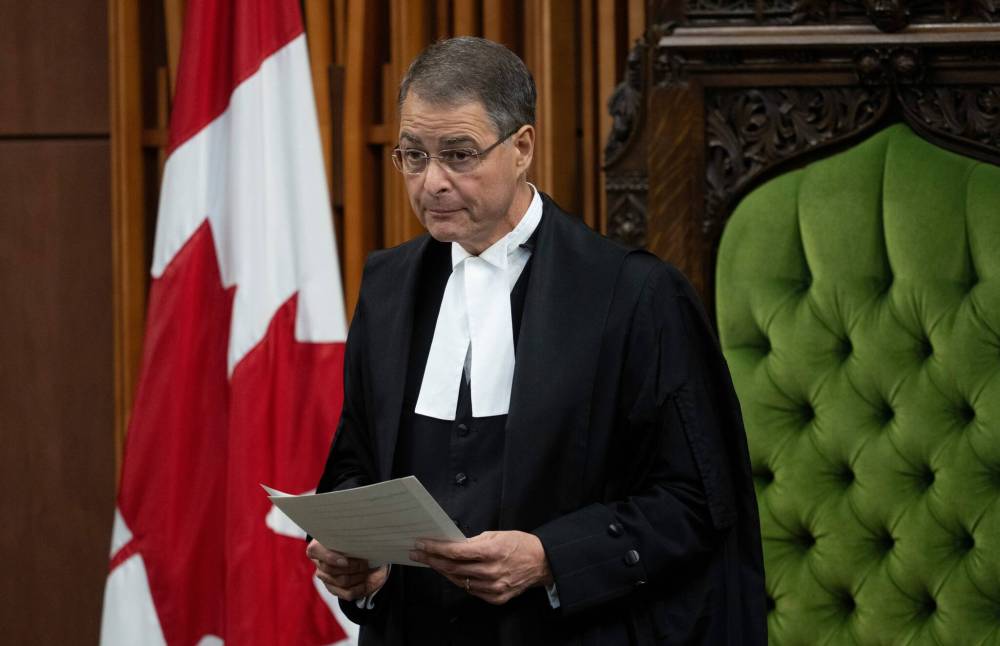A tragedy of errors
Advertisement
Read this article for free:
or
Already have an account? Log in here »
To continue reading, please subscribe:
Monthly Digital Subscription
$0 for the first 4 weeks*
- Enjoy unlimited reading on winnipegfreepress.com
- Read the E-Edition, our digital replica newspaper
- Access News Break, our award-winning app
- Play interactive puzzles
*No charge for 4 weeks then price increases to the regular rate of $19.00 plus GST every four weeks. Offer available to new and qualified returning subscribers only. Cancel any time.
Monthly Digital Subscription
$4.75/week*
- Enjoy unlimited reading on winnipegfreepress.com
- Read the E-Edition, our digital replica newspaper
- Access News Break, our award-winning app
- Play interactive puzzles
*Billed as $19 plus GST every four weeks. Cancel any time.
To continue reading, please subscribe:
Add Free Press access to your Brandon Sun subscription for only an additional
$1 for the first 4 weeks*
*Your next subscription payment will increase by $1.00 and you will be charged $16.99 plus GST for four weeks. After four weeks, your payment will increase to $23.99 plus GST every four weeks.
Read unlimited articles for free today:
or
Already have an account? Log in here »
Hey there, time traveller!
This article was published 28/09/2023 (767 days ago), so information in it may no longer be current.
It was supposed to be a moment of solidarity among allies. Instead, it was a national embarrassment.
On Friday, Canadian Members of Parliament welcomed Ukrainian President Volodymyr Zelenskyy to the House of Commons. During this warm reception, House Speaker Anthony Rota drew the chamber’s attention to a special guest: Yaroslav Hunka.
Rota introduced Hunka as “a Ukrainian hero, a Canadian hero” of the Second World War.

ADRIAN WYLD / THE CANADIAN PRESS
Speaker of the House of Commons Anthony Rota announces he will step down from the position in the House of Commons.
The problem is, Hunka fought on the wrong side, as part of the Waffen-SS Galicia Division.
The House offered a great deal of applause for Hunka, though it’s hard to say how many, or if any, of the MPs present in the chamber clocked exactly what Hunka’s allegiances must have been. Amid the pomp of Zelenskyy’s visit, it’s not so hard to imagine some simply clapped for Hunka out of politeness, only sort-of catching Rota’s references to Second-World-War heroism.
Because surely, the speaker of the House wouldn’t invite a Nazi collaborator to be held up for praise in the House of Commons, under any circumstances. Right?
That said, Rota should have known better. He has profusely apologized, and has stepped down from his post after a rightful skewering across partisan lines.
The Speaker occupies a unique position in the House. Rota came to sit in the speaker’s chair because he commands broad respect among his colleagues. To commit so grave an error, with a foreign dignitary present, making the entire country a target of scorn and derision in the process, is something that had to come with consequences beyond short-term embarrassment.
Not to mention the problems it creates for the guest of honour himself, Zelenskyy. Having repeatedly denied Russian assertions that its war on Ukraine is a bid to “de-Nazify” Ukraine, the Canadian government has practically gift-wrapped a photo of Zelenskyy applauding a Nazi for Russian propagandists.
But this problem goes beyond Rota. Anyone with a high school education should have been able to connect the dots — that a man who fought against the Soviet Union in the Second World War must have been fighting for the Axis. That the call for applause was answered unflinchingly — by government leaders, by opposition leaders, even by Zelenskyy himself — proves that there is a massive blind spot when it comes to certain elements of Second World War history.
Those who fought with SS units in the Second World War — let us use Ukrainian units as an example — have sanitized this allegiance by referring not to Nazi collaboration, but to “fighting for independence” or “fighting against communism.” The latter of those expressions has carried a lot of political weight since the Cold War, to the point where “fighting communism” is seen by Western leaders universally as a virtue, to the point that those who “fought communism” are viewed as heroes without the question of who they fought with ever coming up.
It is this disconnect that allows for mistakes like Rota’s to happen. The geopolitical history of the last 60 years has altered our view of the past so much that Russia has become something like an eternal enemy, despite being our wartime allies.
That these waters are so muddy is baffling. It’s time they were cleared up. We can start by ensuring that we always call Nazis and their collaborators by their names, and that we never, ever let them in the door — especially Parliament’s doors, at that.



